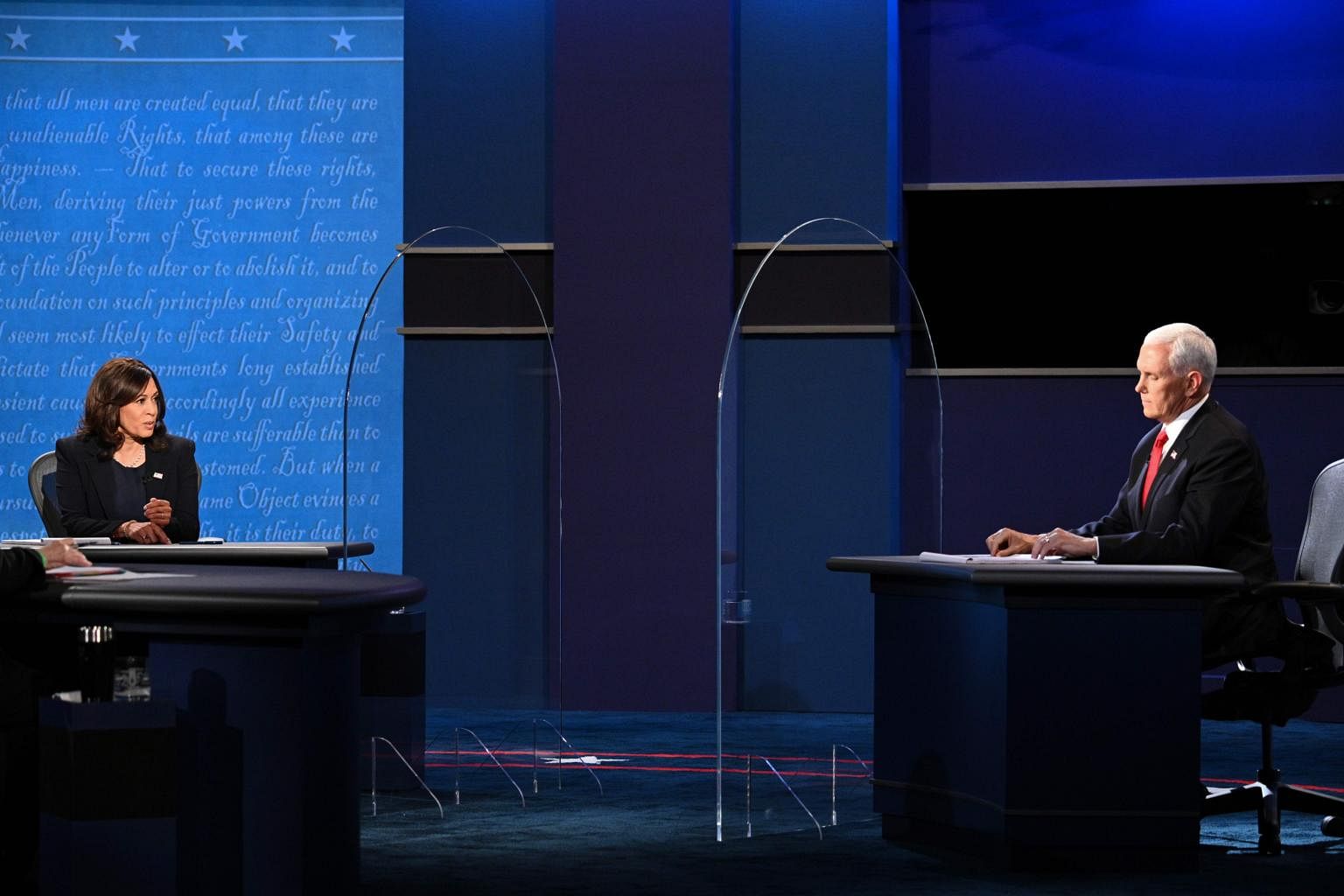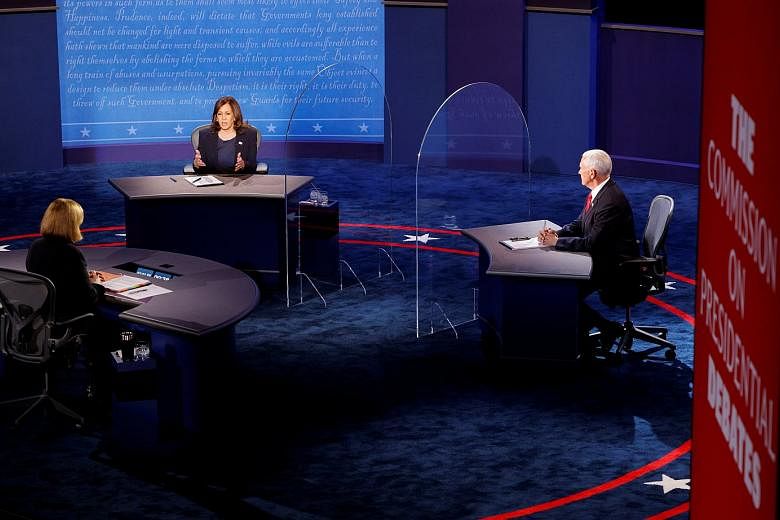WASHINGTON - The vice-presidential debate between Republican Mike Pence, the Vice-President, and Democratic challenger Senator Kamala Harris on Wednesday (Oct 7) night was relatively civil, though both speakers often evaded the questions directed at them.
That was a welcome change, analysts said, from the first presidential debate between President Donald Trump and former vice-president Joe Biden that turned into a shouting match.
Mr Pence, in particular, known not only for his religious conservatism but also his unflappable composure, did not lose it. And in many ways, America got to witness a metaphorical bridge for the seemingly insurmountable political and cultural divide - a multiracial progressive versus a white conservative.
"This was a much more substantive discussion tonight," Dr Mitchell McKinney, a professor from the University of Missouri and an expert on campaign debates, said in an e-mail.
"Both of the vice-presidential candidates will come away from this debate claiming victory, and both avoided any major gaffes or blunders that would do damage to their ticket's chances with voters."
Mr Ian Bremmer, president of the Eurasia Group, wrote on Twitter: "Tonight, Biden folks thought Harris won. Trump folks thought Pence won. That's a draw."
But even though the debate was of greater interest than usual, given both candidates are next in line should something happen to the two oldest presidential nominees in America's history (Mr Trump is 74 and Mr Biden is 77), it is unlikely to have moved the needle much in the election, analysts said.
"No one watching this debate will vote for president based on their running mates," said analyst Taegan Goddard, who runs the Political Wire newsletter.
"Partisans are looking for the running mate to reinforce the top of the ticket. If I had to guess, Democrats were probably happier about Harris than Republicans were about Pence," Mr Goddard wrote.
"But overall, this debate didn't change much."
In the broader context of the presidential campaign, polls show Mr Biden widening his lead over Mr Trump. A New York Times average of national polls showed Mr Biden leading by 9.51 points - more than two points ahead of the average about a week ago.
Separate state polls show that Ohio is a toss-up, with the former vice-president up 45 per cent to 44 per cent. In 2016, Mr Trump won Ohio, which has 18 electoral votes, by eight percentage points.
Quinnipiac University polls released on Wednesday showed Mr Biden up 51 to 40 per cent in Florida and 57 to 38 per cent in Pennsylvania - both states that Mr Trump won in 2016.

Meanwhile, early votes have already far outstripped the 2016 numbers at the same stage of the race. More than 5.6 million people have voted early so far, compared with about 75,000 in 2016. Early voting is generally seen as favouring the Democratic Party.
Florida has had the greatest number of early voters followed by Virginia, Michigan and Wisconsin. South Dakota has seen the greatest increase in early voters in comparison to 2016.
Twenty-three per cent of South Dakota's 2016 turnout has voted early, followed by 19 per cent in Wisconsin and Virginia, and 15 per cent in Wyoming.
"Those are just staggering numbers to see, that this many people have already voted in these states," Dr Michael McDonald, an associate professor of political science at the University of Florida, told USA Today. He manages the United States Elections Project that tracks early voting totals.
Attention will now turn to the second presidential debate between Mr Trump and Mr Biden that is scheduled for Oct 15 in Miami. The debate remains in limbo following the President's Covid-19 diagnosis.
Mr Trump is back in the White House and is apparently asymptomatic after taking what medical experts say are basically experimental drugs.
The President wants to have the debate next week. But Mr Biden has said that the debate should be cancelled if Mr Trump is still contagious.


